#and i love that margerite and garrette love them ;___;
Photo
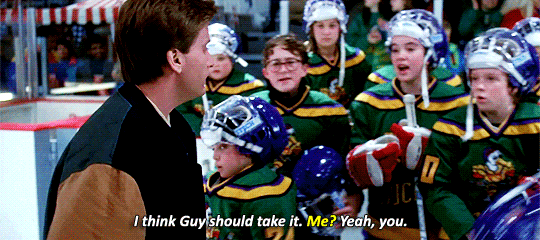
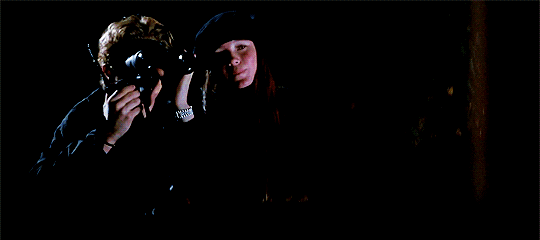


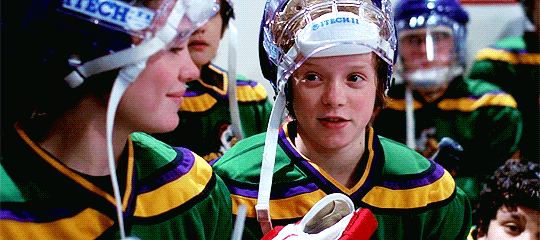

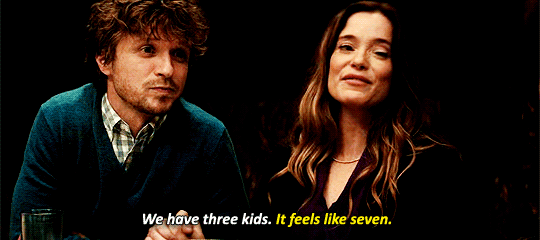

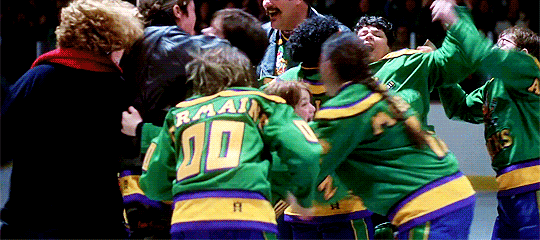
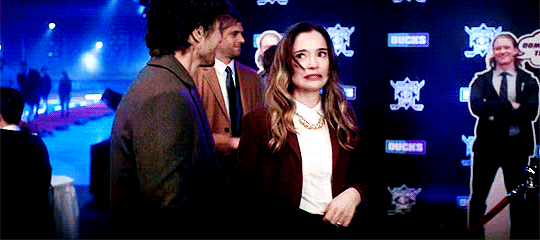
Mighty Ducks Meme [Favorite Relationships]: Connie Moreau & Guy Germaine
“Now it’s Minnesota State Senator Connie Moreau.” “That’s right. And I’m just the lucky guy who gets to go along for the ride.”
#the mighty ducks#the mighty ducks: game changers#userkayles#themightyducks#connie x guy#gereau#mdmeme#gifs: tmd#yes i have fallen back into a hole#steven brill said yes we love two pretty best friends#im so so happy w the endgame they gave them like i feel like w all my endgame ships their endgame is somewhat bad#but this was legit perfect#bc connie has always been so outspoken and badass and guy is like her supportive man who won't let anyone talk shit#girlboss and malewife#and i love that margerite and garrette love them ;___;#i'm so bitter they cut out their d2 storyline (actually not that bitter bc luis is a fuck and i wouldn't want connie/julie fighting)#but it would've given us more screentime for them#and wtf was d3 like its my fav of the trilogy but fr wtf they have two scenes and they fight in both???#charlie lowkey was tryna get them to make up by making them both lookouts#*#this meme will prob get no notes but i think the fandom has resurrected#ps guy standing up when connie stands up in the ducks fly together is so !!!!
565 notes
·
View notes
Text
D3: The Mighty Ducks (1996) is the best Ducks movie and a flawless coming of age movie
It’s no secret that The Mighty Ducks are a beloved trilogy. The three films spawned a professional NHL team named in their honor, 2021 sequel series, as well as many knockoff films released in the 1990s. But with any movie series, fans tend to rank the films and have passionate opinions on which is the best. For most Ducks fans, the answer is simple: D2. It has the Bash Brothers, Team USA dominating, the iconic “Ducks Fly Together” scene and two Queen songs. What’s not to love? But upon a rewatch of the trilogy, I came to realize that it’s not D2, or even the original, that is the best in the series.
It’s the criminally underrated 1996 D3 that for me, is the most mature and has the most heart. Perhaps it’s that the Ducks are now old enough to carry their own weight on screen. Perhaps it’s that the film takes a look at trauma, specifically trauma in teenagers, and how that manifests itself. Perhaps it’s that the film is maybe ahead of its time, in the way it discusses classism, racism and sexism. There is so much about this overly hated film that makes it the best Ducks movie and a perfect coming of age film.
The movie starts presumably a few years following the Ducks’ win against Iceland. They all look noticeably older - definitely older than the middle schoolers we left behind in 1994 - and all of the male Ducks’ voices have dropped a few octaves. Gordon Bombay, played by Emilio Estevez, is presenting the team (except for unfortunately, Jesse Hall, a leader among the Ducks who would’ve made for a strong presence in this mature film, as well as Portman, but we’ll get to him later) with scholarships to his alma mater, Eden Hall, a preparatory high school in Minnesota. Charlie Conway, played by a young, pre-Dawson’s Creek Joshua Jackson, is the Ducks’ captain and unspoken leader. There’s been much debate over the years over whether or not Charlie is the true captain of the Ducks. Adam Banks, played by Vincent Larusso, is far and away better than practically every Duck combined. Fulton Reed, played by Elden Henson, has shown more maturity and leadership at this point. It’s probably true that the Ducks as a team think that Charlie is Captain because of Bombay’s favoritism towards him (and his mother), but I think that this film makes it abundantly clear why Charlie is the captain.
D3 is Charlie’s story. We see that in the opening scene, when Bombay tells Charlie he will not be following the team to Eden Hall, accepting a job instead in California. We learned in the original Mighty Ducks film, that Charlie and his mother left a bad situation in Charlie’s father when Charlie was very young. We also hear about Charlie’s mother, Casey’s marriage to a new man in the D2, who we can assume from what Jan says, that Charlie doesn’t like. We see in that first film, Charlie’s reaction to Bombay announcing that he is leaving the Ducks after the two of them have formed a bond. It is very clear that Charlie deals with abandonment issues, stemming from trauma in his early childhood. Charlie freaks out when a D3 Bombay announces the same thing, and storms off.
Change is the biggest theme in D3. We see how change affects each of the Ducks, even those who don’t get many lines. Some, like Russ Tyler, played by SNL’s Kenan Thompson, think it’s a good thing. All of the Ducks don’t come from good neighborhoods and we assume that most of them don’t have the best home lives, especially when Charlie tells their new coach, Orion, played by Jeffrey Nordling, that the Ducks are the only good thing that any of them have had. Going to a preparatory school should be a good thing for them. But for most of them, it’s not. The new Ducks (who by the way, three of which are people of color, and one of which, is a woman) are immediately told that “their kind” is not welcome at Eden Hall. The Varsity team claim that they feel this way because the captain’s younger brother was not admitted onto the JV team because of the Ducks’ scholarships, but it’s very clear what they really mean. Russ commented that he’s the only black person on the whole campus earlier, and he, Luis Mendoza (The Sandlot’s Mike Vitar) and Ken Wu (Justin Wong) are the only people of color we see in the film. Change takes a toll on each member of the team. We see it the most in Charlie, but we also hear from Fulton on how the separation from his best friend, Dean Portman (Aaron Lohr), who decided not to enroll at Eden Hall, is taking a toll on him. Connie (Margerite Moreau) and Guy (Garrette Henson) have presumably broken up, as the two small scenes we get of them, they are arguing. It’s a transition period, one that the first year of high school often is. But it’s also a look on how a rich, white privileged world is vastly different than the one that the Ducks are used to.
Coach Orion seems like a hardass, especially when he tells Charlie at their first practice that he will no longer be “Captain Duck” (as coined by D2’s Gunnar Stahl, played by Scott Whyte, who now plays the level-headed Varsity goalie Scooter). This, to the Ducks, is a line in the sand. Ever since Bombay turned District 5 into the Ducks four years previous, Charlie has been their captain. They’re in a whole new environment, where the man who gave them so much happiness and so many friendships isn’t, and their “little Duck tricks” won’t work anymore. Orion thinks Charlie is a showoff, and perhaps he is. This Charlie is vastly different than the sweet, shy Charlie we see in D1 and D2. But this Charlie is older, has just been abandoned by a man he considered a father, and is being harassed on a daily basis for being, as Varsity Captain Reilly puts it, “white trash.” I find it hard to believe sometimes that fans can look at Charlie from the outside, and not see who he is on the inside. All of Charlie’s closest relationships that we see portrayed in this movie, are with women. His mother (who he, as a teenage boy, says “I love you” to in the final scene of the movie), his teammates, Connie and Julie, who he gets a lot more screentime with, and with new love interest, Linda (Margot Finley).
I think now is a great time to talk about the shockingly impressive way all of the female characters are portrayed in this series, particularly this movie, especially for a 90s sports film. Connie has always been a leader on and off the ice. She’s in a relationship with Guy, but it’s not her only character trait. Dubbed “the Velvet Hammer” by Averman (Matt Doherty), she stands up for herself, and for her shy teammates (she literally shoves Peter Mark - a character cut out of D2 and D3 for good reason - in D1 when he insults Charlie) and stands up to the entire Varsity team despite them telling her that they hope they can “fight” with her later. Julie “The Cat” Gaffney (Columbe Jacobsen) is the second best player on the Ducks, despite the little ice time (thanks, Bombay) we see her have. She is the first person to tell of the Varsity, telling Captain Reilly that his little brother “just wasn’t good enough.” She’s a huge facilitator in the fire ant prank and despite the very weird and out of character game she had against the Blake Bears, shows that she deserves the number one goalie slot that Reilly gives her - despite what Goldberg, and the obvious underlying sexism there, have to say. I’ve also always been very impressed with Charlie’s mother, Casey (Heidi Kling). Although she has a romance with Bombay in D1, she makes it clear from the get go that her first priority is Charlie. We know that she took the two of them away from an abusive situation, and she’s a goddamn hero for that. Her scenes in D3 are limited, but they always show her chastising Charlie’s antics and encouraging him to stay in school. It goes unsaid, but it’s clear that she knows that he’s not going to get an education this good in the problematic public school system. But according to Linda, Charlie’s love interest, the private school system is no better. The first time we see Linda, she is protesting the “outdated” Warriors team name. This was in a 1996 kids movie, no less. She holds her own against Charlie, calling him out when he’s wrong. No one aside from Charlie, and maybe Fulton, get much screentime or lines aside from Bombay and Orion, but her presence and the point of her character is clear - not every rich person agrees with the horrible things that wealthy people do.
Back to the plot.
When the Ducks receive their positions, they learn that Banks, as a freshman, has made Varsity. From an outside perspective, they seems obvious. Banks is the best player we see in any of the films, definitely miles better than the losers on Varsity, so it seems obvious that he would be promoted. But Banks is unhappy with this. Adam Banks is a fan favorite character, definitely due to the sweet, understated performance by Larusso, but we don’t see much of him. From what we do see of him though, he underwent a huge character arc from D1 to now. In D1, Banks goes against his father’s protests and joins the Ducks, claiming that he “just wants to play hockey.” Here in D3, we see that Banks is utterly miserable despite playing with some of the best players in the state, purely because he’s not with his friends. At the end of the film, he makes the (questionable) decision to rejoin the Ducks and go against the Varsity. But Varsity seems to feel that Banks fits in with them, for obvious reasons. He’s the only Duck who comes from an affluent background, and he’s definitely the most clean cut. Captain Reilly is visibly angry in the final showdown with the Ducks that they no longer have Banks on their side, as if he’s betrayed “his kind.”
The turning point of the film comes when after Charlie has quit the freshman team (no longer the Ducks), Hans, a father figure to the Ducks and Bombay, suddenly passes away. It’s an insanely dark moment for a Disney film, especially when Bombay returns to the funeral and reminds the Ducks that it was “Hans who taught them to fly” and Charlie storms off, crying. I think Joshua Jackson, in the Ducks films, as well as in Dawson’s Creek, is phenomenally good at portraying teenagers who wouldn’t normally be seen as leading men. Who let their emotions overtake them, who have anger issues, who deal with familial problems. Characters like that in leading roles were almost unheard of in the 90s, and in the upcoming scenes, it reminds us why this side of Charlie that we’ve seen throughout the movie is not the only side of Charlie.
Bombay takes Charlie to the rink to see Orion skating with his disabled daughter, who was injured in a car accident. He reveals to Charlie that Orion quit the NHL to take care of her, and this immediately changes Charlie’s opinion of him, but he’s still unconvinced about rejoining the team. The next scene is without question, the greatest and most important scene of the trilogy. The last two films spent way too much time telling us how great of a person Bombay was, how he was the Minnesota Miracle Man,despite us seeing so little of that onscreen. We see him making mistake after mistake, hurting the team, being an unjustified dick to those around him. But this scene more than makes up for all of that. I’ve put the quote from this scene below.
Bombay: I was like you, Charlie. When I played hockey, I was a total hot shot. I tried to take control of every game. I wound up quitting. So I tried the law. I ruled the courtroom, but inside, I’m a mess. Start drinking. Man, I was going down. But then this great thing happened, maybe the best thing ever - I got arrested and sentenced to community service. And there you were - Charlie and the Ducks. And as hard as I fought it, there you were. You gave me a life, Charlie, and I want to say thank you. I told Orion about all of this when I talked to him about taking over. I told him that you were the heart of the team and that you would learn something from each other. I told him that you were the real Minnesota Miracle Man.
Charlie: You did?
Bombay: I did. So be that man, Charlie. Be that man.
It’s a callback to D2, when Jan tells Bombay “Be that man, Gordon. Be that man.” This scene is flawless. Every good thing that has happened to the Ducks, came because of Charlie’s heart. It came because of that game when Charlie refused to cheat, and made Bombay see his wrongs. It came because of when Bombay first tried to quit the team, and seeing how hurt Charlie was, agreed to stay. It was Charlie who stepped out of the game against Iceland so that Banks could play. It was Charlie who found them Russ. Giving the credit to a young, emotionally unstable teenager, rather than their Emilio Estevez, hotshot Bombay, is the best thing this series ever did.
This movie, in my opinion, is nearly flawless. Every moment has been planned to make the same point - change sucks. Especially when you’re a teenager. Even more so when you’re a teenager with trauma.
48 notes
·
View notes